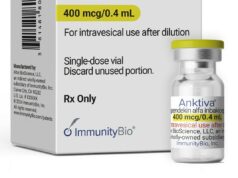
A gene therapy company is teaming up with a large children’s hospital to develop a treatment for a form of muscular dystrophy.
San Francisco-based Audentes Therapeutics said Monday that it had made a licensing deal with Columbus, Ohio-based Nationwide Children’s Hospital to develop therapies for Duchenne muscular dystropy (DMD) and myotonic dystrophy type 1 (DM1). The therapies will combine adeno-associated viral vector, or AAV delivery with antisense oligonucleotides, which are a form of synthetic DNA strand capable of altering RNA and validated means of treating muscular dystrophy.
At first, Nationwide’s research institute will test the gene therapy AT702 in a cohort of boys with DMD, with a Phase I/II study expected to start in the fourth quarter of this year. The company and the hospital will also evaluate a gene therapy for DM1, AT466, for which the company expects to file an Investigational New Drug application – a prerequisite for starting a clinical trial – with the Food and Drug Administration next year. The two plan to investigate two potential therapeutic approaches for DM1, called vectorized RNA knockdown and vectorized exon skipping.
In a note to investors, Cowen analyst Ritu Baral wrote that the deal has Audentes entering a relatively crowded space for gene therapy in DMD with a product that is nevertheless differentiated from the others. In particular, he wrote, AT702’s combination of antisense oligonucleotides with AAV delivery and smaller genetic payload could help it overcome the disadvantages of “naked” antisense oligonucleotides like Sarepta Therapeutics’ Exondys 51 (eteplirsen) while providing a better efficacy profile than other gene therapies in the DMD space.
Competing gene therapy candidates for DMD include Solid Biosciences’ SGT-001 and Sarepta Therapeutics’ AAVrh74.MHCK7.micro-dystrophin, both in Phase I/II development.
Outside of the Nationwide deal, Audentes is also performing preclinical work on two DMD gene therapies, AT751 and AT753, which employ the same vector construct as AT702.
“We see tremendous potential in combining AAV with validated oligonucleotide-based approaches to treat diseases that are not amenable to traditional AAV-based gene replacement,” Audentes CEO Matthew Patterson said in a statement. “We believe this approach, combined with our in-house large-scale cGMP manufacturing capability, can deliver best-in-class therapies for the treatment of Duchenne muscular dystrophy and myotonic dystrophy.”
Most gene therapies developed in recent years have used AAV-based approaches, including the first one to win FDA approval, Spark Therapeutics Luxturna (voretigene neparvovec), for a rare inherited form of blindness. A related approach is to use a lentiviral vector, as is the case with bluebird bio’s Zynteglo, which recently received an opinion favoring conditional approval for beta-thalassemia from the European Medicines Agency’s Committee for Human Medicinal Products.
Photo: jxfzsy, Getty Images








